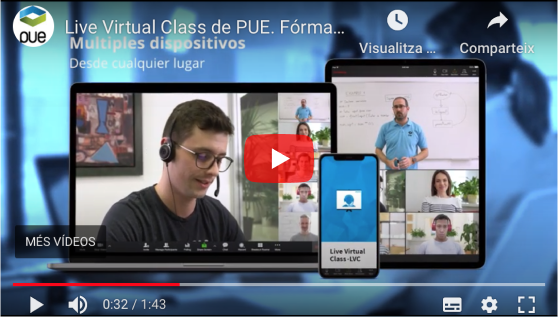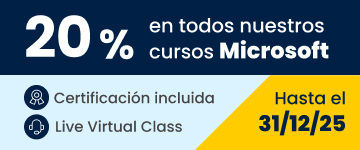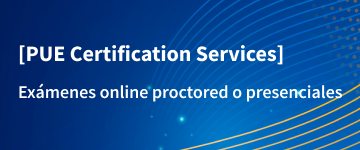Formación oficial
con certificación incluida
Todos nuestros cursos están disponibles en Live Virtual Class
La modalidad Live Virtual Class de PUE te permite disfrutar de la experiencia de la formación presencial desde cualquier localización. Solo necesitas un equipo y conexión a internet para realizar tu formación con el seguimiento y aprovechamiento adecuados estés donde estés.
Próximos cursos
Live Virtual Class y Online
PL-400: Microsoft Power Platform Developer
01 septiembre - 05 septiembre
Live Virtual Class
PL-200: Microsoft Power Platform Functional Consultant
15 septiembre - 18 septiembre
Live Virtual Class
MD-102: Microsoft 365 Endpoint Administrator
15 septiembre - 19 septiembre
Live Virtual Class
AZ-400: Designing and Implementing Microsoft DevOps Solutions
15 septiembre - 19 septiembre
Live Virtual Class
Gestión de contenedores con Kubernetes - Certified Kubernetes Administrator (CKA)
15 septiembre - 19 septiembre
Live Virtual Class
Contenidos destacados
Ampliamos 20% dto. en cursos Microsoft
Gracias al apoyo de Microsoft ampliamos hasta el 31 de diciembre de 2025 la promoción del 20% de descuento en todos los cursos oficiales de Microsoft que impartimos desde PUE. Da el salto que buscas a nivel profesional de la mano de nuestros instructores certificados.
Descubre las ventajas de NUESTRA FORMACIÓN ONLINE
Como training partners oficiales de los líderes en tecnología, los cursos online de PUE disfrutan de ventajas diferenciales: cursos oficiales online 100% bonificables por FUNDAE, certificación incluida online proctored para el colectivo PUE Alumni y mucho más.
¿todavía no conoces nuestro servicio de certificación oficial?
PUE está acreditado como centro oficial de certificación por las entidades certificadoras de referencia a nivel mundial. A través de PUE Certification Services, ponemos a vuestra disposición la posibilidad de llevar a cabo exámenes oficiales de certificación en modalidad online proctored o en presencial.






















